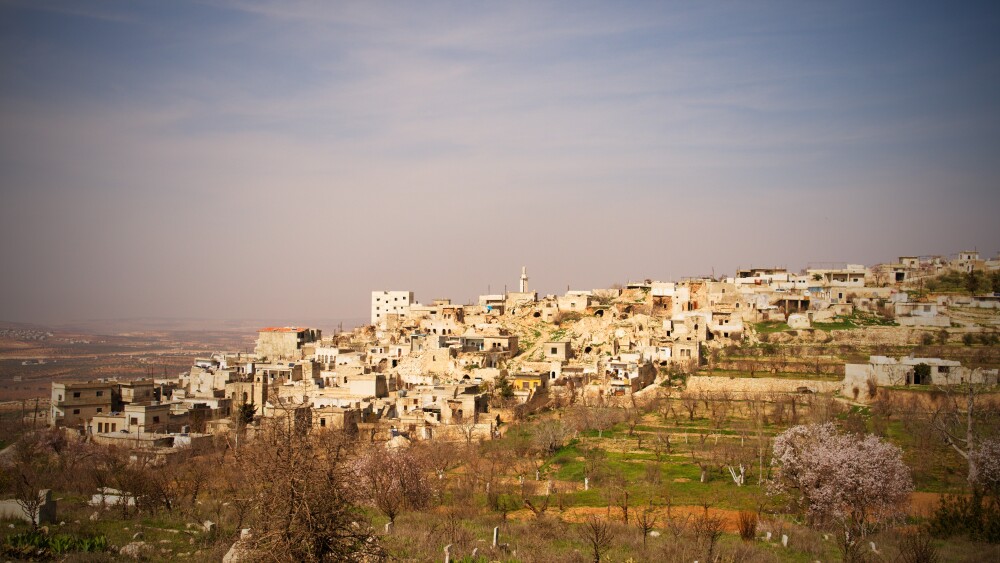As anti-Assad groups tightened their hold on Idlib, Syria, between 2012 and 2015, they started building an alternate system of justice. What emerged were two systems. The first were Hay’at Tahrir al-Sham and Ahrar al-Sham faction-run tribunals. The second were shared sharia committees in cities throughout the province. Both drew their authority from uncodified Islamic law and judicial discretion, not legal codes. In this environment, decisions were variable, and power rather than principle dictated outcomes.
According to testimonies from retired judges, every armed faction operated its own version of a legal code, some using remnants of Arab civil law and others motivated by stricter Islamist interpretations. Litigants were aware of these distinct systems of justice and would try to find the court most likely to hear their complaint in their favor. It was in this environment, where no centralized legal authority or appeals court existed, that the patchwork of law existed. Law became just another weapon of war.
The war displaced millions of people and left vast amounts of land and property unoccupied.
Factions designed courts to mediate disputes between combatants, but they would make decisions for civilians as well. The judges were often clerics, or loyal fighters, all with little-to-no training. Dispositions may reflect the factional interests of the presumed parties more than any principled legal reasons. Research indicates that litigants often experienced poor enforcement when commanders or officials did not follow up on decisions, and judges who did not have legal training provided inconsistent judgments, further disadvantaging villagers.
This arbitrariness had the most significance in the area of property disputes. The war displaced millions of people and left vast amounts of land and property unoccupied. Islamist courts took advantage of those circumstances. In 2019, a Hay’at Tahrir al-Sham-aligned committee ruled that the group could take every property not within the possession of its owner. This paved the way for confiscating homes, agricultural land, and shops, many of which Christians and other displaced families owned. Proceeds from rents on these homes flowed to the committees. Locals could see that officials treated these homes as spoils of war and rented them to displaced Muslim families. Foreign fighters and military leaders squatted in occupied private homes without consequence and later obtained legal recognition of their ownership. The courts ignored original owners who tried to solicit lawyers, or were willing to send proxies.
Hay’at Tahrir al-Sham endeavored to formalize these practices via the bureaucratic machinery of the “Salvation Government.” The organization established reforms such as assigning house numbering and creating zoning maps to establish modern state bureaucracy. However, in 2020 it instituted a law formally requiring squatters on state land to pay exorbitant fines or face eviction.
Hay’at Tahrir al-Sham seized property from displaced families of minorities to redistribute to those loyal to the group.
The situation particularly dispossessed minorities. Jabhat al-Nusra, Hay’at Tahrir al-Sham’s precursor, labeled the Druze community in the region as apostates and expelled large numbers from Jabal al-Summaq. In Ghassaniyeh, a town with a significant Christian population, Hay’at Tahrir al-Sham expelled some Islamist extremist elements in 2020, but still occupied uninhabited Christian houses and fields for its use, renting these to surrounding Muslim families while still charging Christian owners rent. These examples reflect a consistent pattern: Hay’at Tahrir al-Sham seized property from displaced families of minorities to redistribute to those loyal to the group, and while the group sometimes justified these actions as political expediency, it was consistent with the organization’s self-interested strategy of building its own power base.
Salvation Government rhetoric upholds continuity with Syrian law and the promise of development. In practical terms, however, property relationships are organized along sectarian and factional lines. Observers note that minority land rights exacerbate reconciliation, and the administration has difficulty moving beyond Salafi jihadism’s legacy. Courts and administrators view absence or disloyalty as reasons to forfeit properties while loyal fighters enjoy preferential access to housing and farmland.
The judicial order issued in Idlib demonstrates the politicization of sharia and not the substance of Islamic law. By inhibiting interpretation in the service of factional ends, militant groups are able to reorganize the ownership map as indicators of wartime hierarchies rather than justice. Refugees who do not return home will likely lose properties forever. Without a rights-based regime of legal principle to follow, reconstruction will entrench these imbalances, as dispossession forms the spine of post-conflict settlement.







